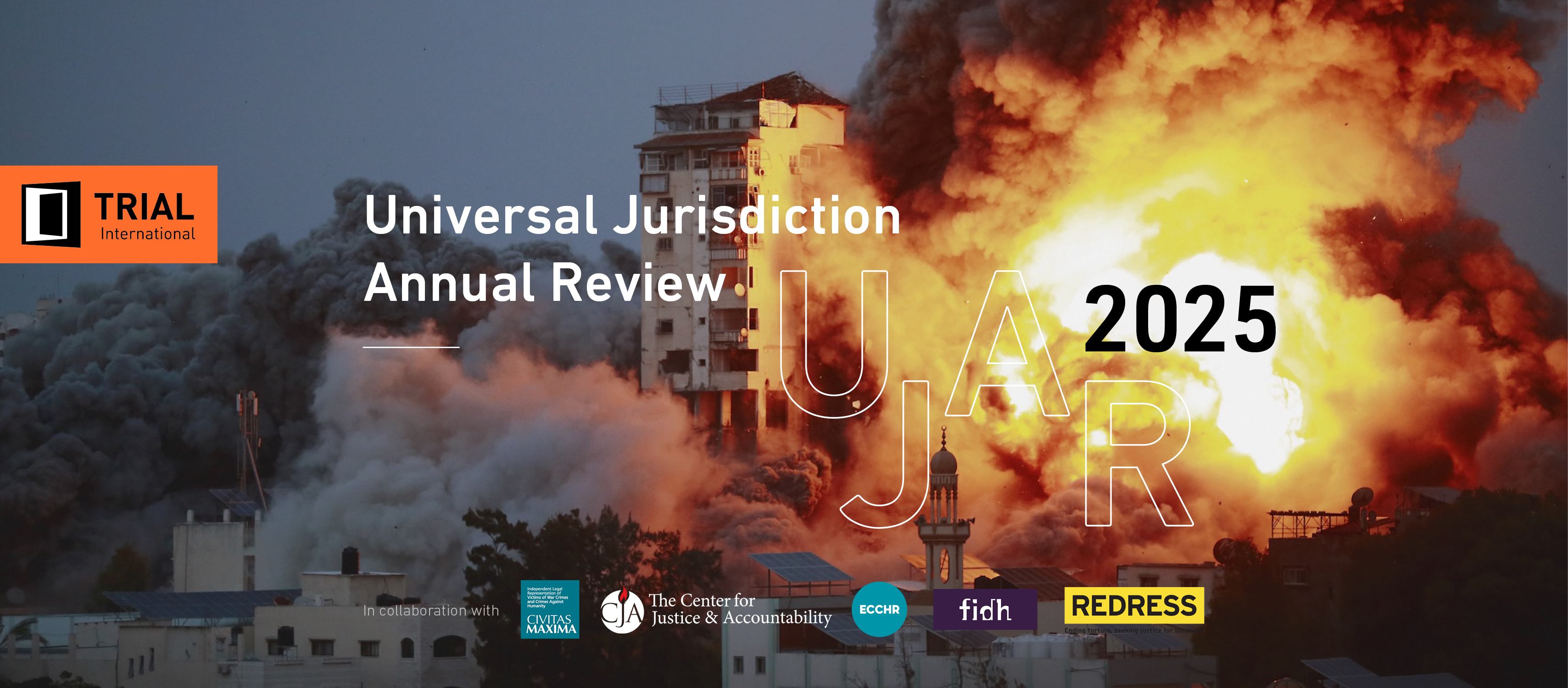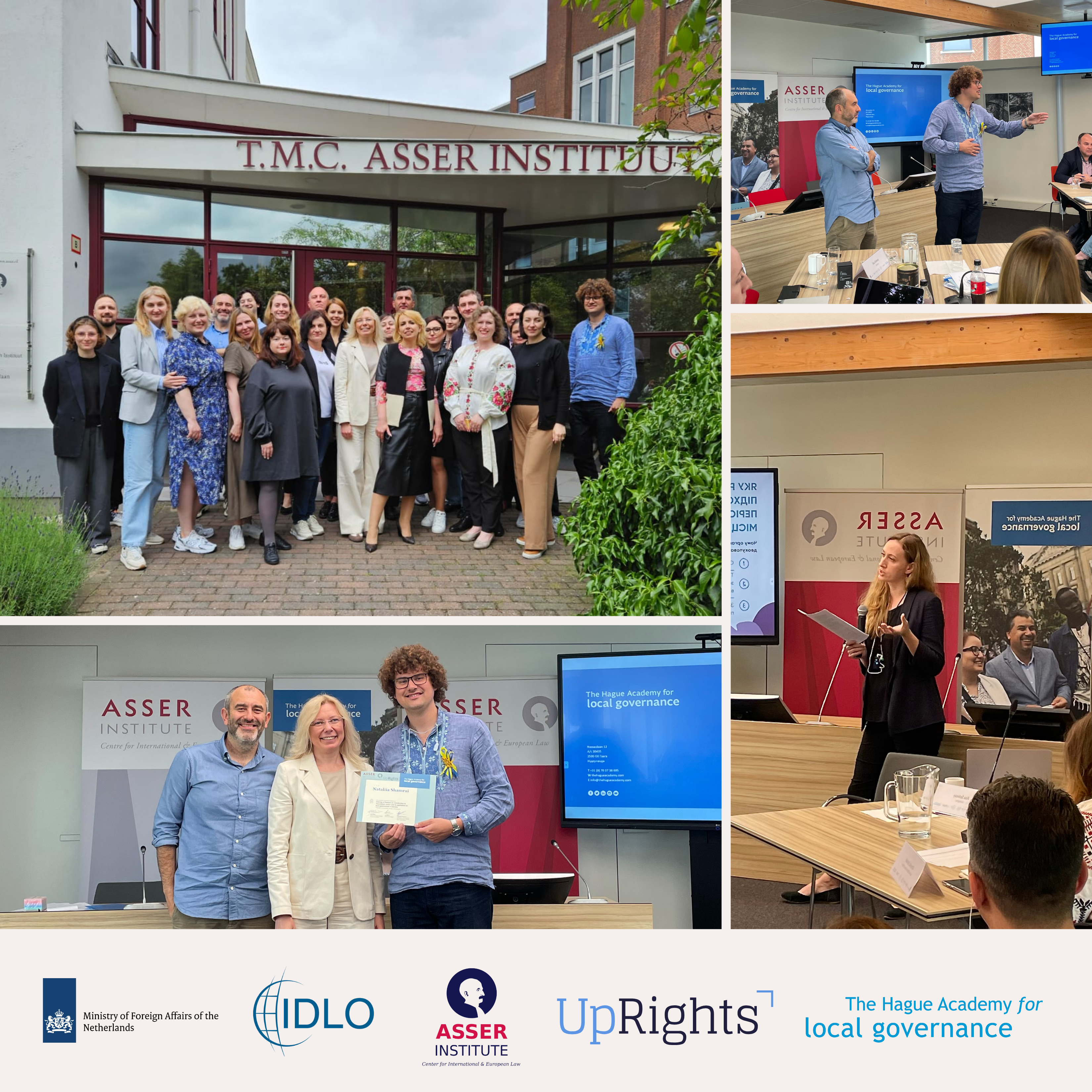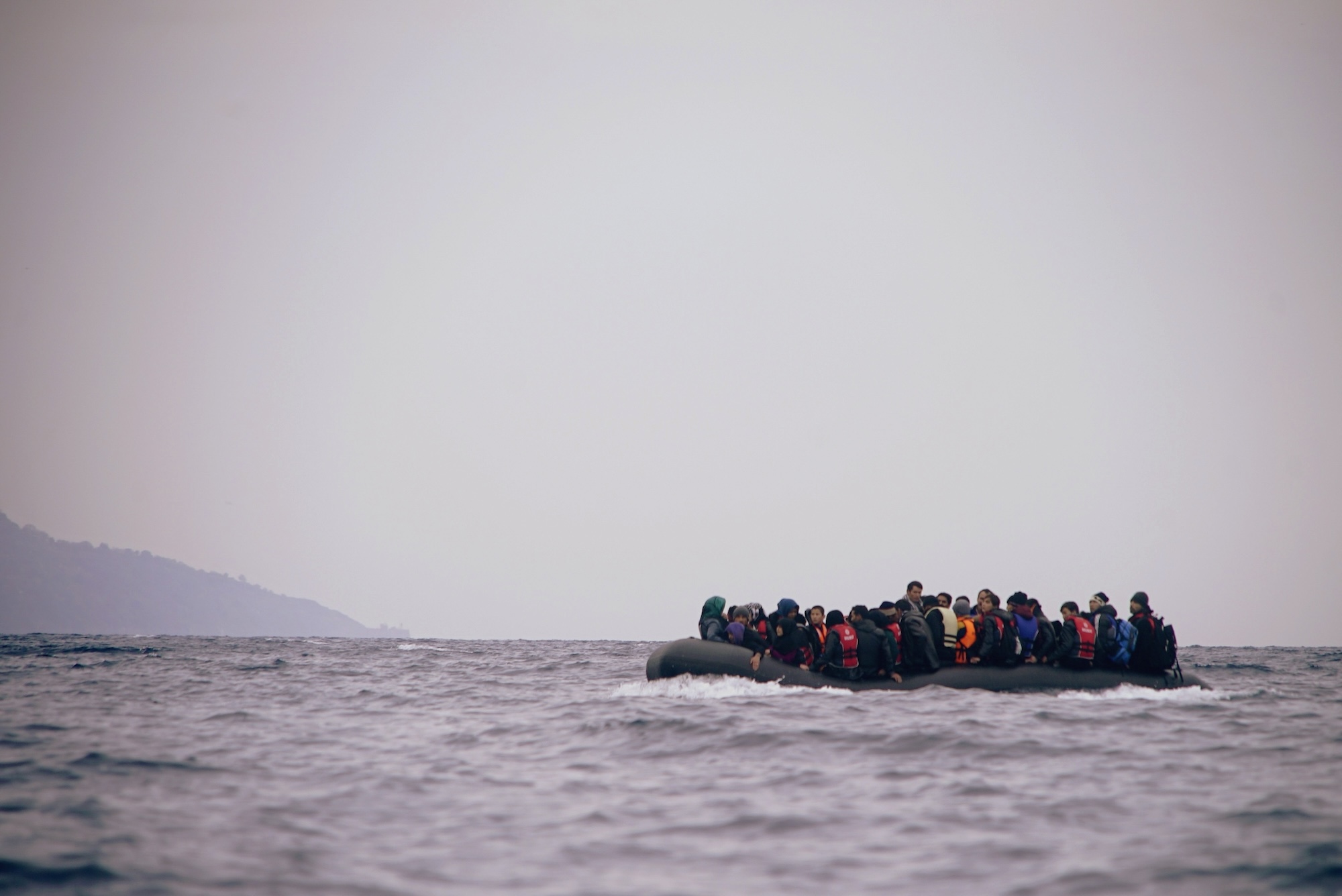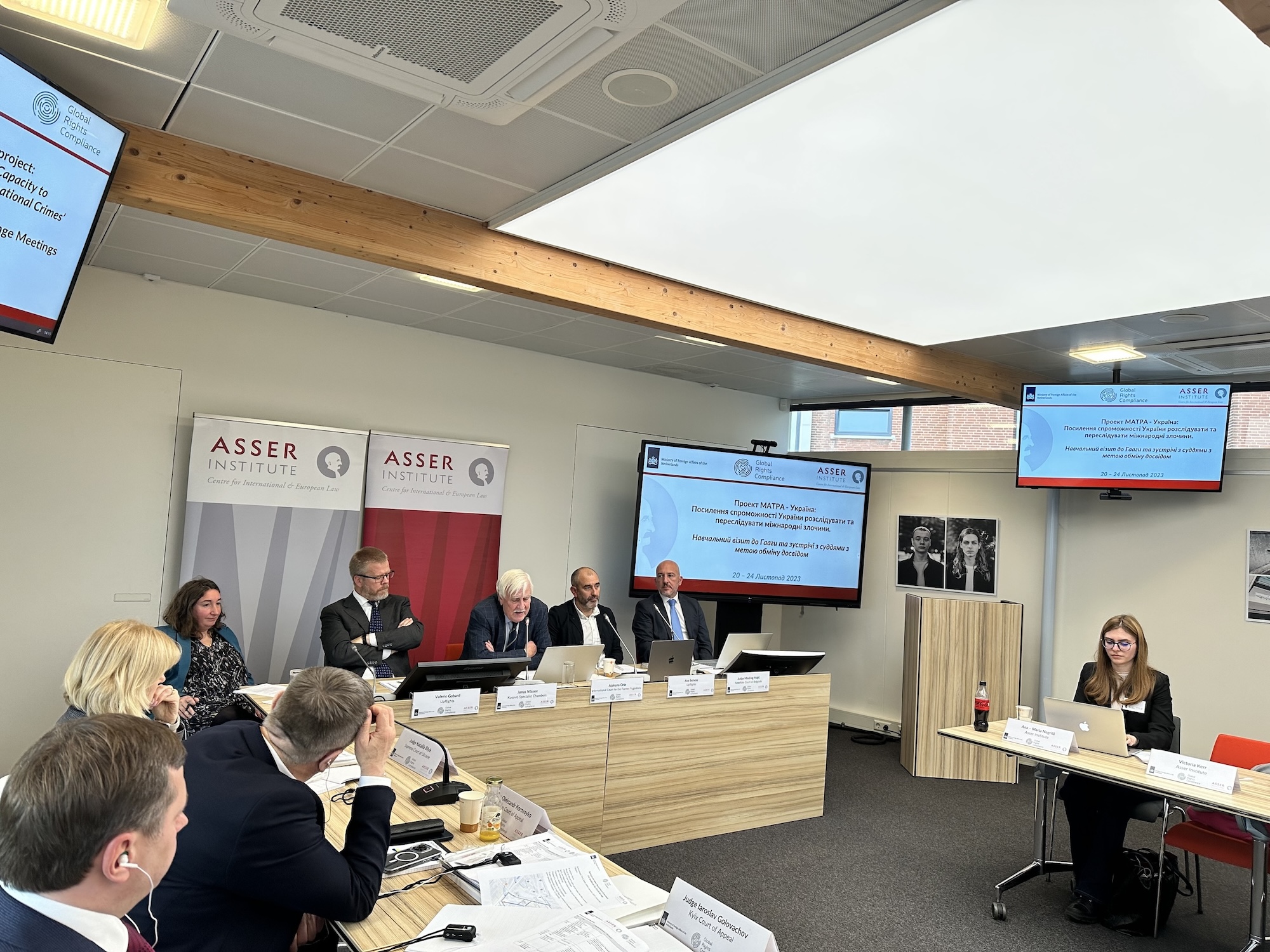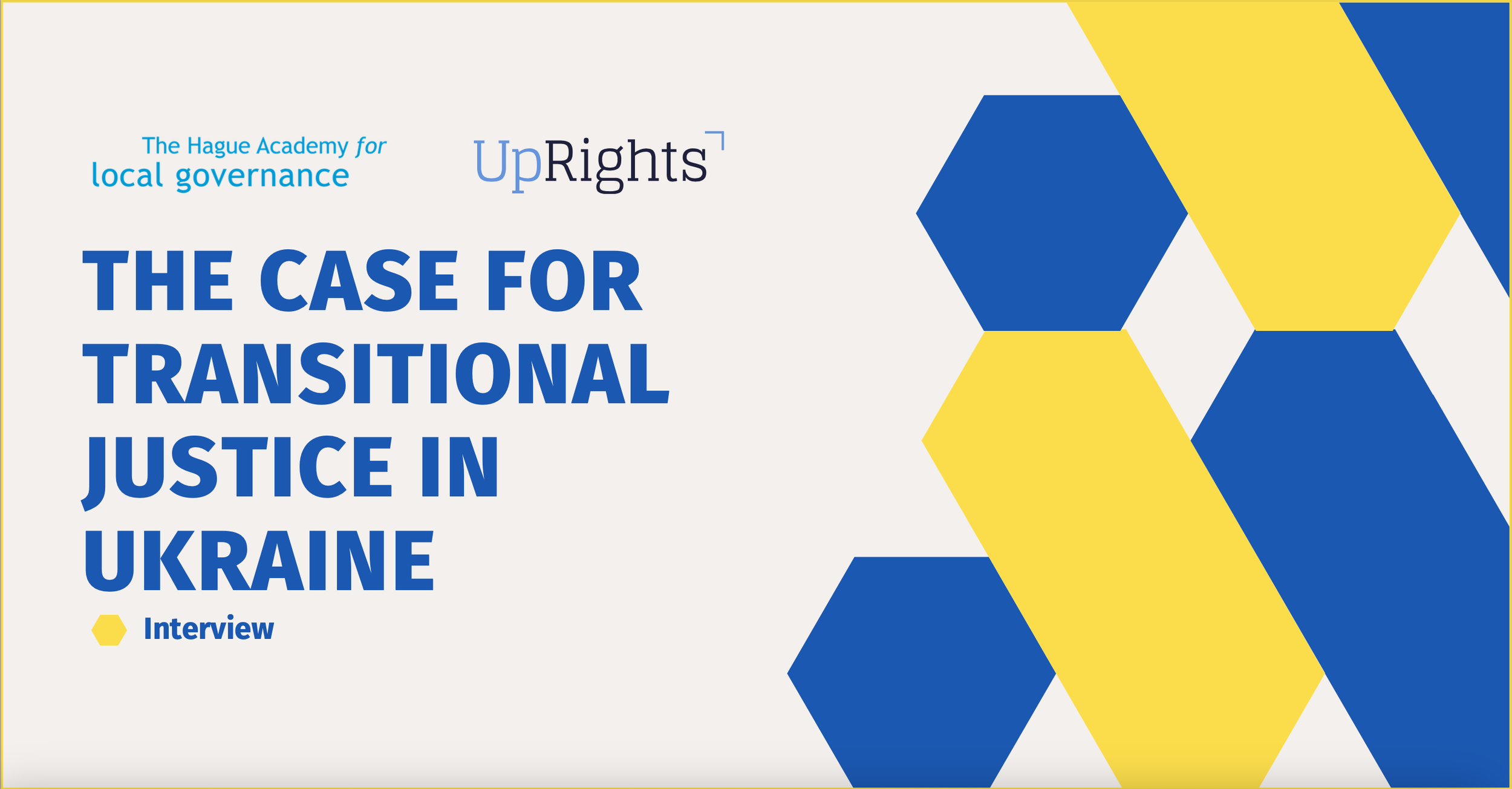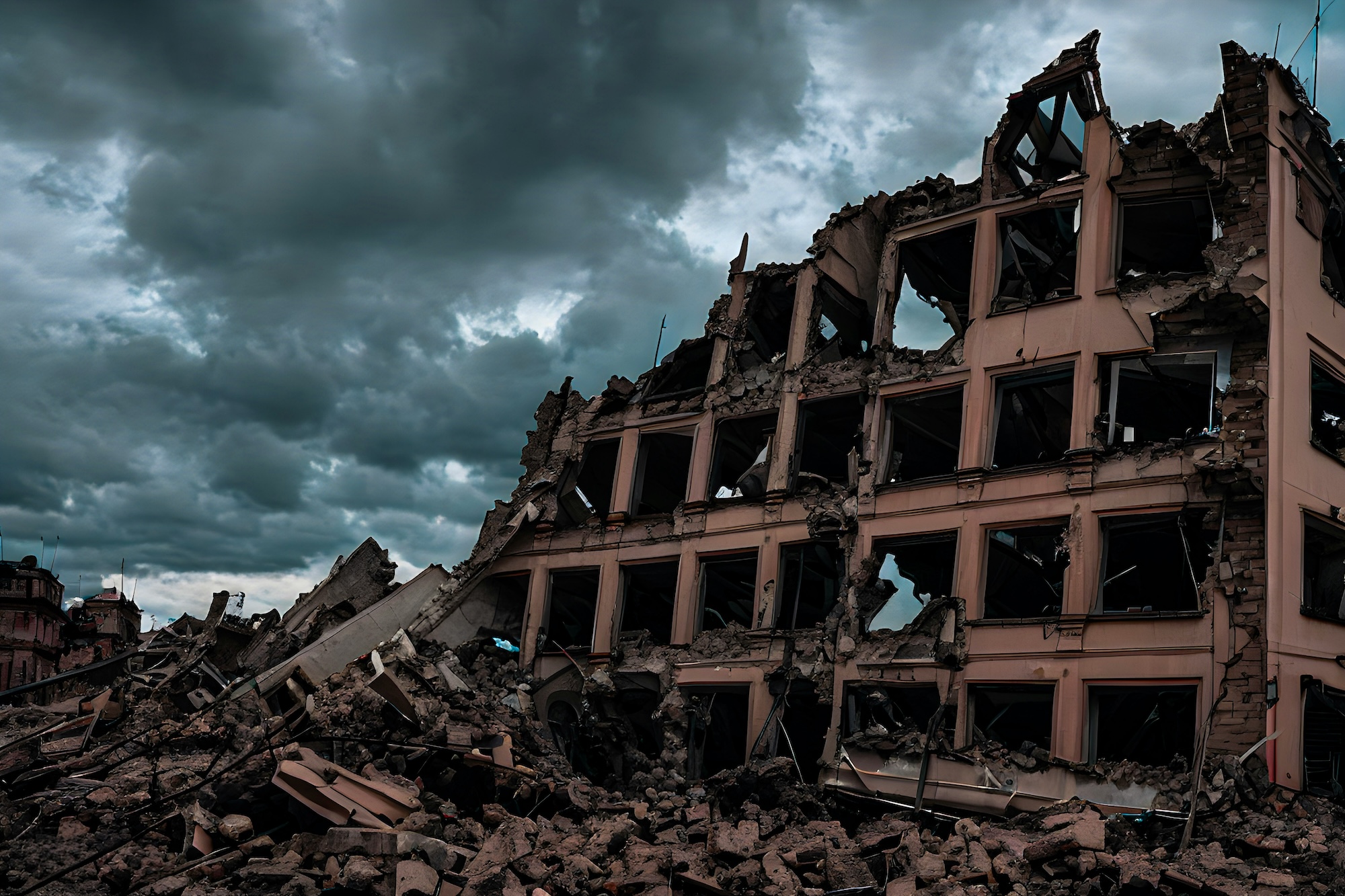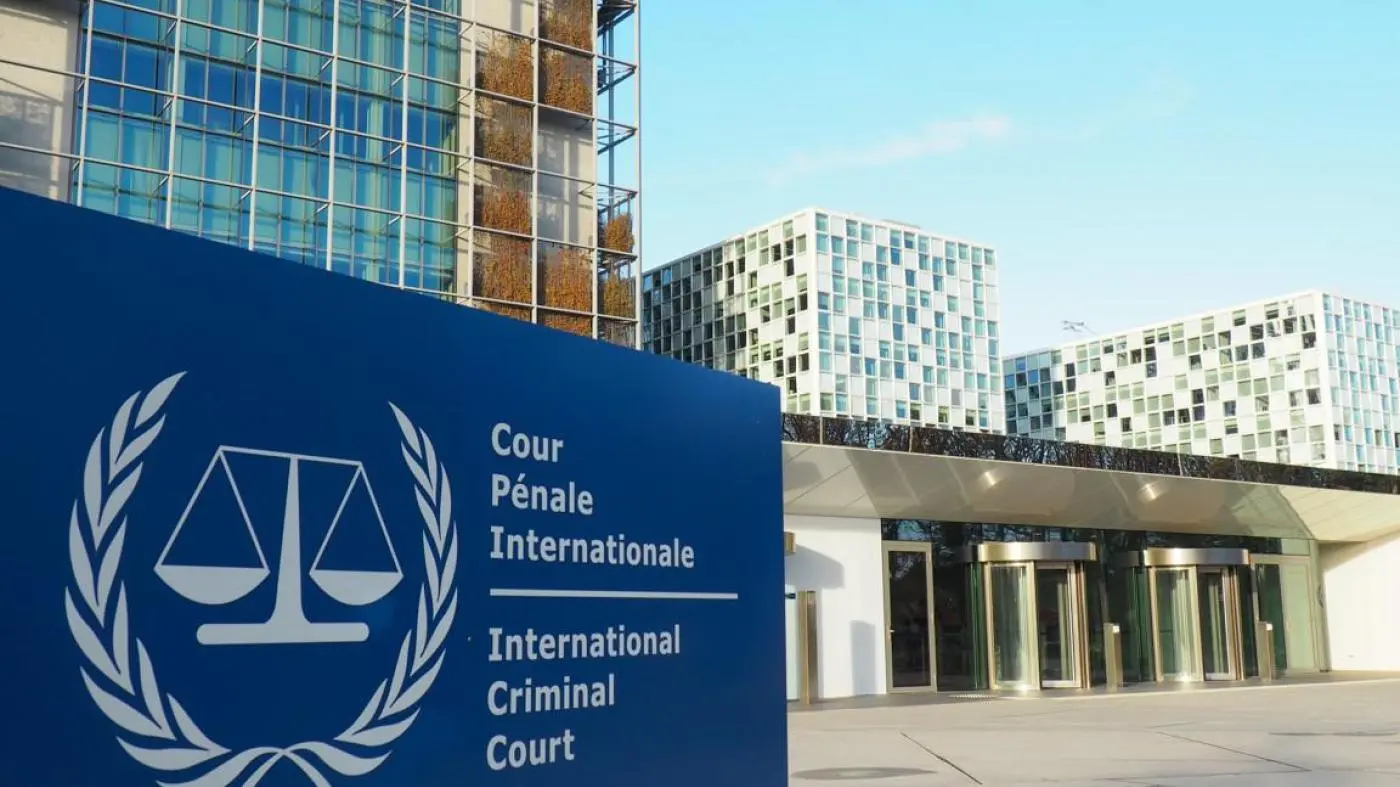The Role of Transitional Justice in Ukraine: National and Local Dimensions
07-04-2025
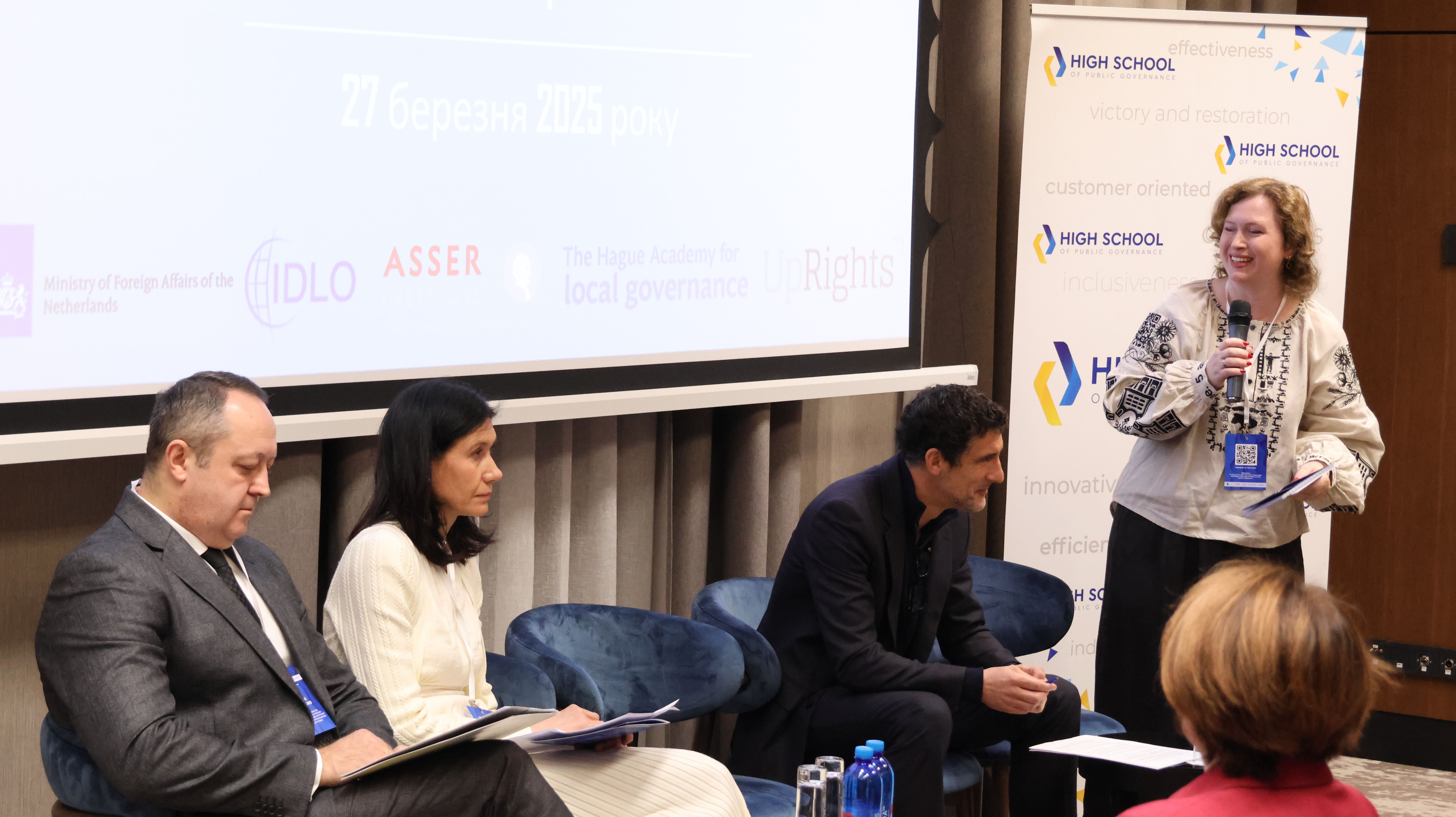
On March 27, 2025, UpRights co-hosted the conference “The Role of Transitional Justice in Ukraine: National and Local Dimensions” in Kyiv, Ukraine. Organized with the National Agency of Ukraine on Civil Service, the High School of Public Governance, The Hague Academy for Local Governance, and supported by the Ministry of Foreign Affairs of the Kingdom of the Netherlands, the conference created a forum for Ukrainian public officials, local government representatives, international partners and civil society organisations to engage in broad and comprehensive discussions on the scope of transitional justice in the Ukrainian context.
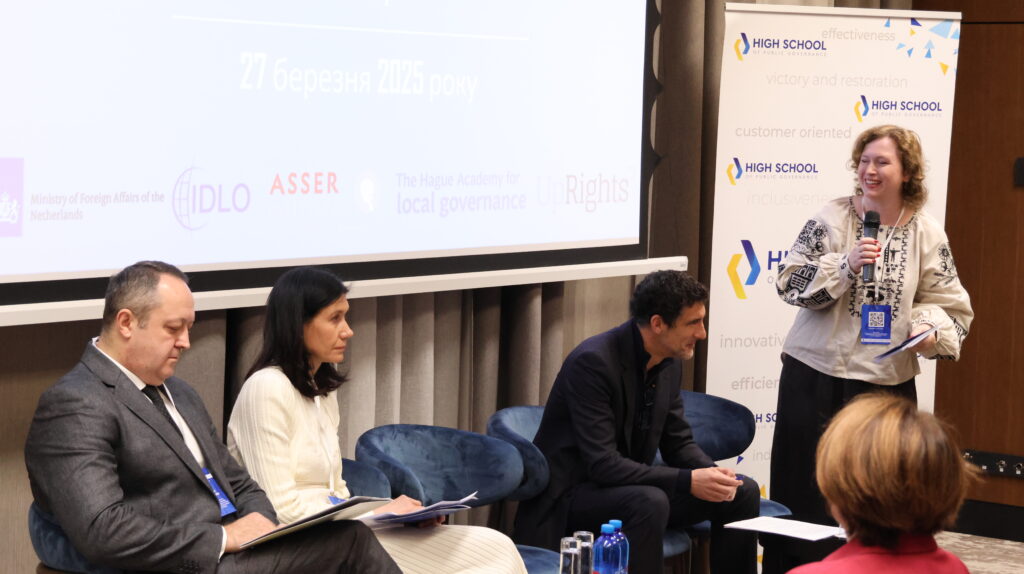
The conference was designed to bring together a range of actors from different sectors to consider how to effectively collaborate on developing a holistic approach to transitional justice in Ukraine.
By bringing together a diverse range of perspectives, including representatives of local government in currently occupied and de-occupied communities, legal experts, public officials and civil society organisations working on providing support and compensation to victims, officials working on public archives, and civil society organisations working on cultural and artistic aspects of memorialisation, the conference provided a comprehensive platform to consider how to integrate transitional justice practices with present and future challenges.
Central to the conference’s vision was the understanding that transitional justice will serve as an important tool for all levels of government in dealing with the past, empowering victims, and promoting reconciliation and social cohesion. In doing so, it highlighted the necessity of building institutional capacity at every level of government—a critical step in ensuring that justice, accountability, and the protection of human rights remain at the forefront of Ukraine’s recovery process.

Central to the conference’s vision was the understanding that transitional justice will serve as an important tool for all levels of government in dealing with the past, empowering victims, and promoting reconciliation and social cohesion. In doing so, it highlighted the necessity of building institutional capacity at every level of government—a critical step in ensuring that justice, accountability, and the protection of human rights remain at the forefront of Ukraine’s recovery process.
Background
The journey that culminated in this conference was shaped by longstanding collaborative engagement. In 2024, a training programme for public officials was developed by UpRights, The Hague Academy for Local Governance, the High School of Public Governance, and the National Agency of Ukraine on Civil Service, to provide an introduction to the fundamentals of transitional justice and guidance on its application in the work of local government in de-occupied communities.
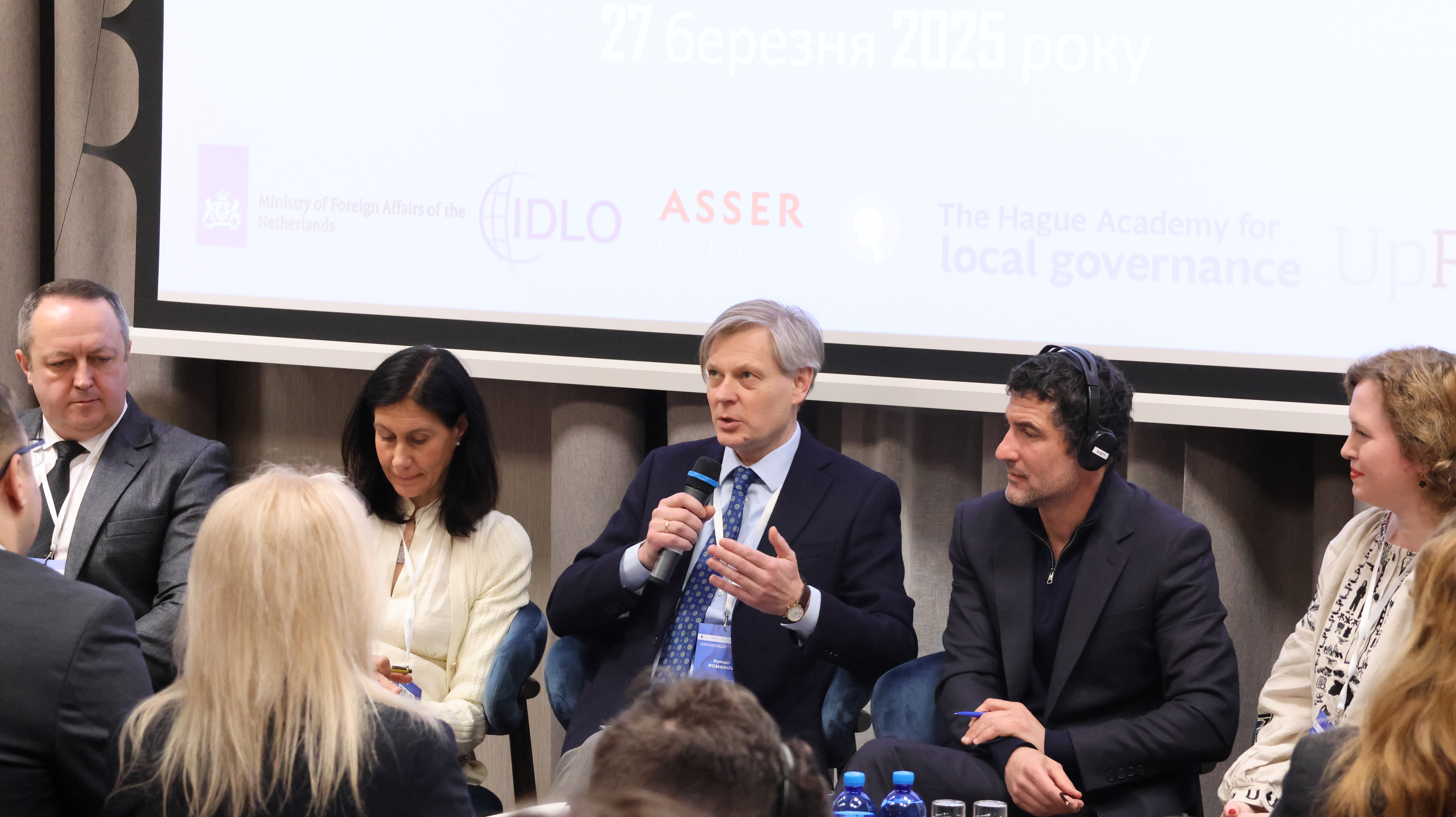
Following a successful Training of Trainers week in The Hague in May 2024, which involved 16 representatives of various Ukrainian ministries and local administrations, six interactive online modules and a series of live follow-up workshops in different regions of Ukraine, including Kharkiv, Kherson and Kyiv, equipped over 250 civil servants with basic concepts and practical tools for addressing conflict-related harms using transitional justice approaches. These efforts laid a robust foundation that enriched the discussions at the conference.
Findings
Opening speakers reflected on the complexity of developing transitional justice responses in Ukraine and the need to ensure that policies are embedded within the particularities of the Ukrainian context. Questions arose as to how transitional justice is, in fact, applicable in Ukraine – is it since the beginning of the full-scale invasion, during the occupation of Crimea, or as far back as Ukraine’s transition to a democratic society following the dissolution of the USSR. It was highlighted that whatever manner transitional justice does take in Ukraine; it must be Ukrainian actors taking the lead on defining its role.
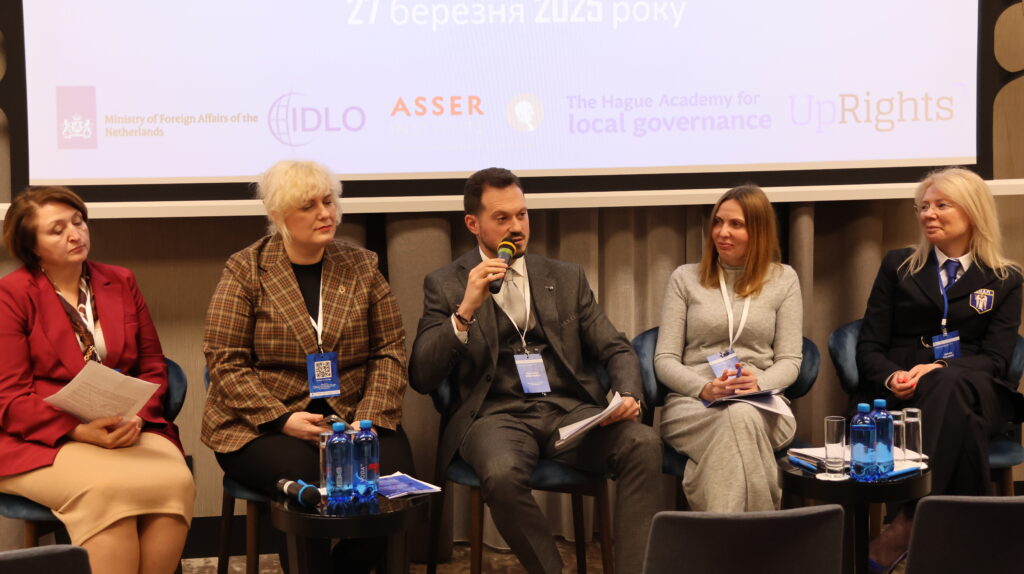
There was recognition, in this regard, that whatever lies ahead, transitional justice must extend well beyond the realm of criminal accountability, emphasizing its vital role in multiple sectors, from providing reparations, delivering victim support, ensuring transparent and accountable institutions to memorializing past atrocities.
The subsequent panel considered how local governments perceive and implement transitional justice particularly in conflict-affected communities. This session brought together local actors from diverse regions, who provided detailed accounts of the operational challenges they face in their communities.
They described the rapid reactivation of administrative service centers in the wake of conflict, the substantial logistical challenges posed by supporting and integrating internally displaced persons in host communities, the need for compensation mechanisms tailored to the needs of rural populations, and challenges to the social cohesion of communities in the aftermath of occupation.
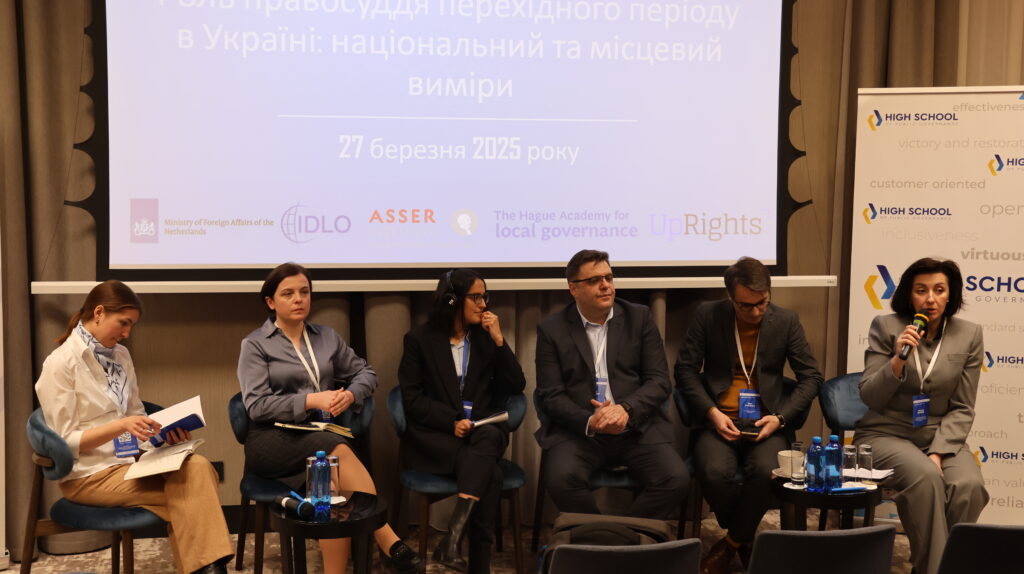
These accounts illustrated how the principles of transitional justice are not just theoretical but can be actively integrated into everyday governance.
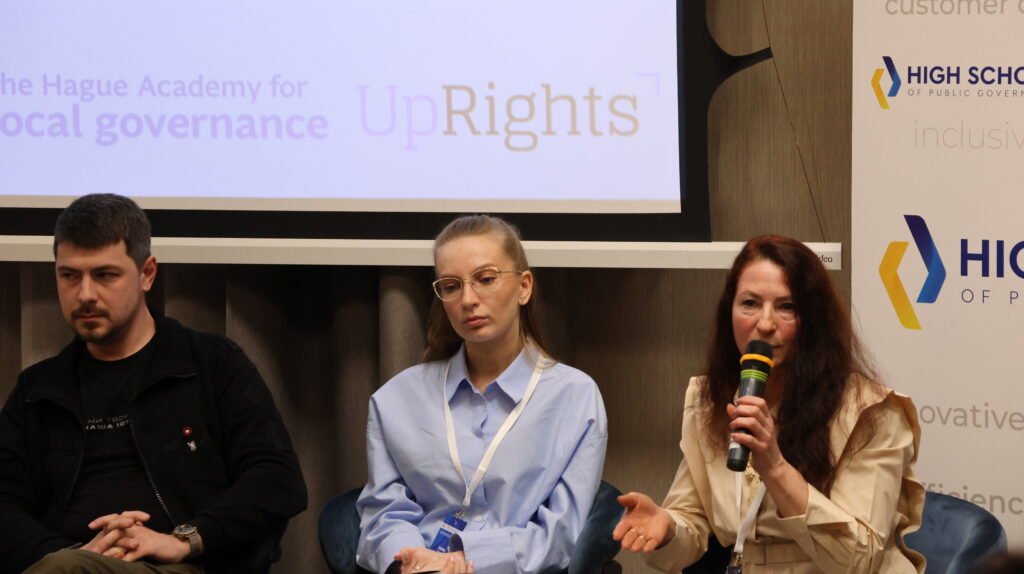
Subsequent sessions explored developments and continuing challenges in the provision of support to and compensation for victims, in particular victims of conflict-related sexual violence, as well as the issue of documentation for the purposes of accountability and memorialisation, providing a detailed overview of the extensive efforts underway to record and preserve the evidence of war crimes and human rights violations. Experts explained how these documentation efforts are designed not only to support ongoing legal proceedings but also to serve as a long-term repository of the country’s collective memory.
The discussion highlighted that memorialisation goes far beyond the erection of physical monuments; it encompasses a range of practices—from educational initiatives and public commemorations to creative cultural expressions—that together foster a resilient public narrative.
In closing reflections, both Ukrainian institutions and international partners reaffirmed their commitment to the long-term integration of transitional justice into public policy. The final remarks underscored that the comprehensive discussions and practical insights shared throughout the conference would serve as the basis for future capacity-building efforts and policy innovations. The conference did not mark an endpoint but rather a basis for continued engagement across sectors, one that envisions a future where justice and human rights form the bedrock of Ukraine’s recovery and development.
Finally, participants noted the importance of the creation of a forum in which Ukrainians both lead discussions and engage in conversations directly with each other, including different sectors of Government and civil society. While access to international experts remains a critical component of building successful domestic policies, it is of particular importance that national actors are provided the opportunity to discuss and ultimately lead on decision making concerning the scope, applicability and implementation relating to this important topic.
—
‘Restoring Dignity and Justice in Ukraine’
This project is part of the ‘Restoring Dignity and Justice in Ukraine’ programme, focusing on advancing accountability for international crimes committed in Ukraine. The full programme is funded by the Netherlands Ministry of Foreign Affairs and is implemented by the International Development Law Organisation (IDLO), in partnership with the T.M.C. Asser Institute, the Center for International Legal Cooperation (CILC), and the Netherlands Helsinki Committee (NHC).
The project aims at institutional strengthening and capacity development needs of various parties in Ukraine dealing with international crimes: prosecutors, police, judges, as well as journalists and civil society organisations. We believe that with the support of the international community, Ukraine can advance accountability for these crimes.
Let’s meet.
UpRights is based in The Hague, Netherlands
Info@uprights.org
Phone: +31 707013213


